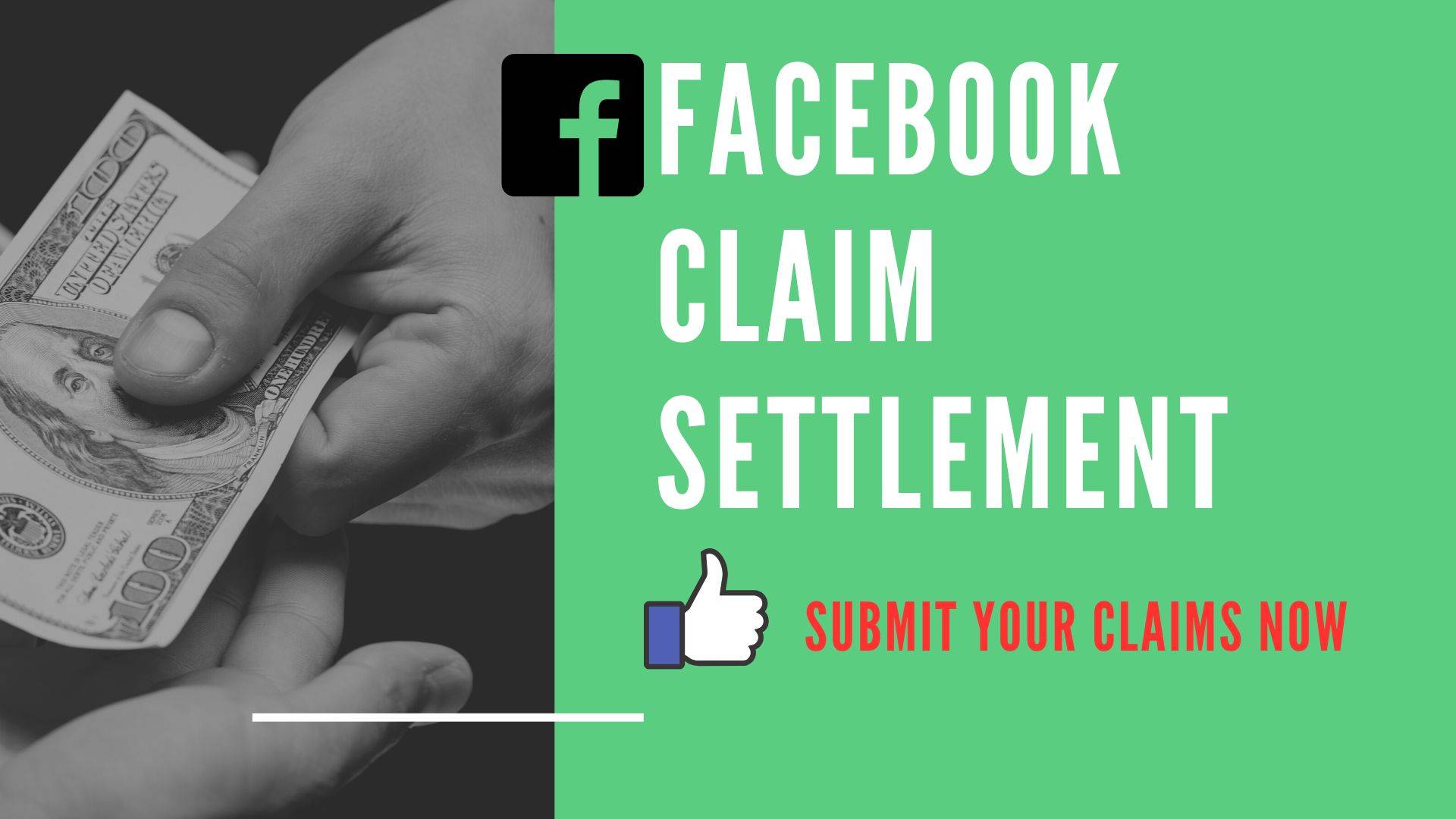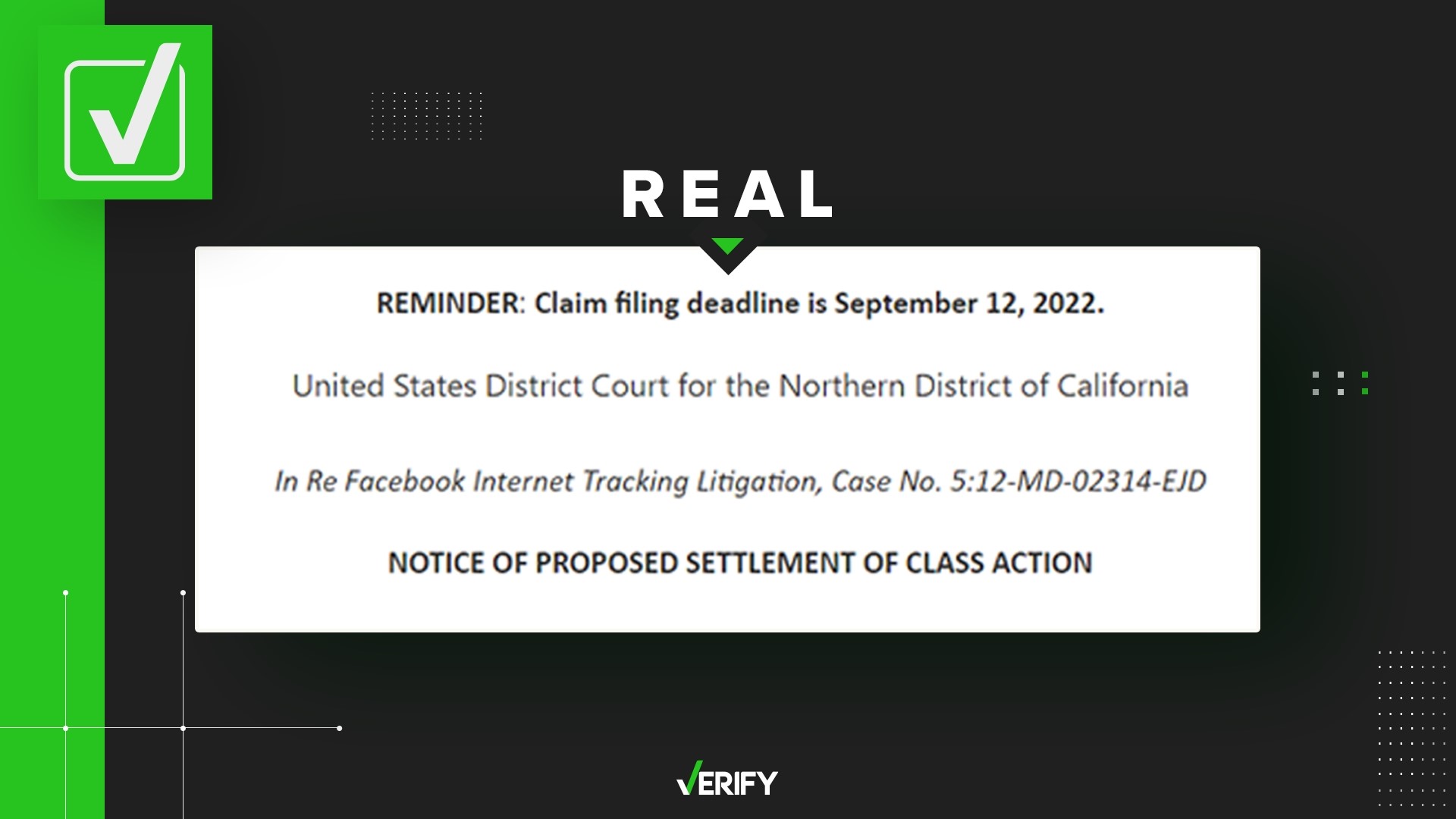Facebook's $90 Million Payout: A Landmark Settlement in Data Tracking Scandal
Table of Contents
- Facebook class action privacy lawsuit is legit | verifythis.com
- Facebook's .5 Million Location Tracking Settlement: See If You ...
- Facebook Settlement Payment Date 2024 Online - Aarika Stephannie
- Understanding the Facebook Internet Tracking Settlement
- Is the Facebook Internet Tracking Settlement Legit? Details
- Facebook Class Action Lawsuit Settlement - No Proof of Purchase
- Understanding the Facebook Internet Tracking Settlement
- Google reaches 2 million settlement in location tracking ...
- Facebook Class Action Lawsuit: Here’s How to File a Claim to be Part of ...
- Fbinternettrackingsettlement.com 2022: Is It A Scam? More Details Here

In a significant development, Facebook has agreed to pay $90 million to settle a longstanding lawsuit over its data tracking practices. The social media giant has been at the center of controversy for years, with users and regulators alike raising concerns about its handling of personal data. This settlement marks a major milestone in the ongoing debate over online privacy and the role of tech companies in protecting user information.

The lawsuit, which was filed in 2012, alleged that Facebook had tracked users' browsing history and other online activities even after they had logged out of the platform. The plaintiffs claimed that this practice, known as "cookie tracking," was a violation of their privacy and constituted a breach of trust. The settlement, which was announced recently, brings an end to the long-running litigation and provides a measure of relief to the affected users.

The Background

Facebook's data tracking practices have been under scrutiny for years, with many users expressing concern about the company's ability to collect and use their personal data. The company has faced numerous lawsuits and regulatory actions, including a $5 billion fine imposed by the Federal Trade Commission (FTC) in 2019. The FTC found that Facebook had violated a 2012 consent decree by failing to protect user data and deceiving users about its privacy practices.

The current settlement is separate from the FTC action and relates specifically to the company's use of cookies to track user activity. Cookies are small files that are stored on a user's device and allow websites to recognize and track their browsing history. Facebook used cookies to collect data on users' online activities, including their visits to other websites and their interactions with online ads.


Implications of the Settlement

The $90 million settlement is a significant development in the ongoing debate over online privacy. It highlights the importance of transparency and accountability in the tech industry and sends a strong message to companies that fail to protect user data. The settlement also underscores the need for robust regulations and enforcement mechanisms to ensure that companies comply with privacy laws and respect user rights.
The settlement will provide compensation to the affected users, who will receive a portion of the $90 million payout. The exact amount of the payout will depend on the number of eligible claimants and the terms of the settlement. In addition to the monetary payout, the settlement also requires Facebook to implement new measures to protect user privacy and provide greater transparency about its data tracking practices.
Facebook's $90 million settlement is a landmark development in the ongoing debate over online privacy. The settlement highlights the importance of transparency and accountability in the tech industry and sends a strong message to companies that fail to protect user data. As the tech industry continues to evolve and grow, it is essential that companies prioritize user privacy and take steps to protect user data. The settlement is a step in the right direction, but more needs to be done to ensure that users' rights are respected and protected.
With the rise of big data and artificial intelligence, the importance of protecting user data has never been more critical. As users, we must be aware of the risks and take steps to protect our online privacy. This includes being mindful of the data we share online, using privacy settings and ad blockers, and supporting companies that prioritize user privacy. By working together, we can create a safer and more private online environment for everyone.